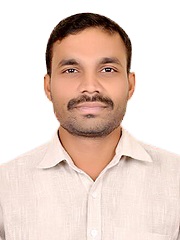Fisheries Extension Education
Course Attendees
Still no participant
Course Reviews
Still no reviews
Course Name : Fisheries Extension Education
Code(Credit) : FSEE 2207 (1-1-0)
Course Objectives
1. To bring desirable changes in human behavior through knowledge and skill.
2. To create an environment for students and rural people to upgrade their talent, leadership, and efficiency.
3. To provide appropriate solution of the farmer’s problems through scientific interactions.
Course Outcomes
CO-1 : Knowledge on the concepts, principles, practice, recent changes and emerging challenges in fisheries extension. PO1, PO2, PO3
CO-2 : Able to identify the situation and select appropriate method of practice from various fisheries extension approaches. PO3, PO4, PO7
CO-3 : Able to transfer the modern and scientific findings of lab to the farmers land thereby increasing the farmer’s profitability PO3, PO7 PO8
PO1 Knowledge enhancement: Enhanced knowledge on concepts, essential facts, basics, principles and theories relating to fishery biology, biodiversity and aquatic environment, aquaculture, fish nutrition, fish physiology, genetics and biotechnology, fish processing, fisheries engineering, fish microbiology, fishery extension, economics, and biostatistics.
PO2 Professional and Entrepreneurial Skill development: Understanding the value and processes of life-long learning and professional enhancement and entrepreneurship development.
PO3 Critical thinking: After identifying the assumptions from the subject, take informed actions to frame the thinking and check out the degree to which these assumptions are accurate and valid, and look at our ideas and decisions (intellectual, organizational, and personal) from different perspectives.
PO4 Problem Solving: Solve the problems from concerned disciplines using the knowledge, skills and attitude acquired from various disciplines in fisheries science.
PO7 Communication & Extension Skills: Develop appropriate communication skills for effective transfer of knowledge and technologies through extension activities.
PO8 Team Work: Play effective roles in capture, culture, management, financial and marketing of fish produce.
Course Syllabus
Theory
Unit I: Introduction to extension education and fisheries extension - concepts, objectives and principles; extension education, formal and informal education; History and role of fisheries extension in fisheries development.
Unit II: Fisheries extension methods- individual, group and mass contact methods and their effectiveness, factors influencing their selection and use; characteristics of technology, transfer of technology process; important TOT programs in fisheries.
Unit III: Role of NGOs and SHGs in fisheries; Fisheries co-management; Adoption and diffusion of innovations, adoption and diffusion process, adopter categories and barriers in diffusion of fisheries innovations;
Unit IV: Extension program planning and evaluation - steps and importance; participatory planning process.
Unit V: Basic concepts in rural sociology and psychology and their relevance in fisheries extension; social change, social control, social problems and conflicts in fisheries; gender issues in fisheries; theories of learning, learning experience, learning situation
Practicals
Collection of socio-economic data from fishing villages.
Study of social issues/problems through participatory and rapid rural appraisal techniques.
Stake holders analysis and needs assessment.
Assessment of development needs of community and role of formal and non – governmental organizations through stakeholder analysis.
Case studies on social/gender issues and social conflicts in fisheries.
Case studies on extension programs and Success stories.
Practical exercises on conducting fish farmers meet.
Reference Books
1. Saxena, A. 2011. Fisheries Extension. Daya Publishing House, New Delhi (ISBN-13 : 978-8170357551)
2. Rathore, O.S., Chauhan, M.S., Dhakar, S.D. and Ojha S.N. 2008. Handbook on Extension Education. Agrotech Publications. (ISBN 9788183213677)
Session Plan
Theory
Session 1-2
Introduction to extension education, Fisheries extension, Concepts, Objectives, Principles of Extension education and Formal education
Session 3-4
History and role of fisheries extension on fisheries development. Individual, Group and Mass contact methods and their effectiveness.
Session 5
Technology – definitions and characters, Transfer of technology process and Important TOT progammes in Fisheries
Session 6-7
Fisheries co-management, Goals, Role, Advantages and Limitations of co-management
Session 8-9
Adoption and diffusion of fisheries innovations and Models of Communication
Session 10
Elements of communication, Diffusion of innovations and Adopter categories. Barriers to diffusion of fisheries innovations.
Session 11-12
Extension programme planning and evaluation-steps and importance. Participatory progamme planning.
Session 13-14
Participatory planning process, Basic concepts in rural sociology and psychology and their relevance in fisheries and Social change
Session 15
Social problems and their controls, Gender issues in fisheries and Conflicts in fisheries
Session 16
Practicals
Session 1-2
Collection of socio-economic data from fishing village
Session 3-4
Stake holder analysis and needs assessment
Session 5
Case studies on social and gender issues
Session 6
Case studies on social conflicts in fisheries
Session 7
- Case studies on extension programmes
Session 8
Case studies on success stories
Session 9-10
Practical exercise on conducting fish farmers meet
Session 11-12
Study of social issues/problems though PRA Techniques
Session 13-14
Assessment of development needs of communist
Session 15-16
Role of formal and non-governmental organizations through stakeholder analysis
Assignment Topics
- The role of fisheries extension in sustainable fisheries management.
- Developing effective communication strategies for fisheries extension programs.
- The impact of climate change on fisheries and the role of extension education in adaptation and mitigation.
- Assessing the effectiveness of fisheries extension programs in improving livelihoods of fishing communities.
- Designing and implementing community-based fisheries extension programs.
- Innovations in technology for fisheries extension and their potential for enhancing productivity and sustainability.
- The role of gender in fisheries extension and strategies for promoting gender equality and women empowerment in the sector.
- Integrating traditional knowledge and modern science in fisheries extension education.
- Evaluating the socio-economic impacts of fisheries extension interventions.
- Enhancing the capacity of fisheries extension workers through training and professional development.
Our Main Teachers

Specialization in Aquaculture Fish Genetics and Breeding, Fish Biotechnology and Bioinformatics, Fish reproduction, Aquariculture, Advanced Aquaculture Systems, (Recirculatory Aquaculture Systems, Biofloc, Raceways etc.), Geometric and Truss Morphometry, DNA Barcoding, Live food production techniques

